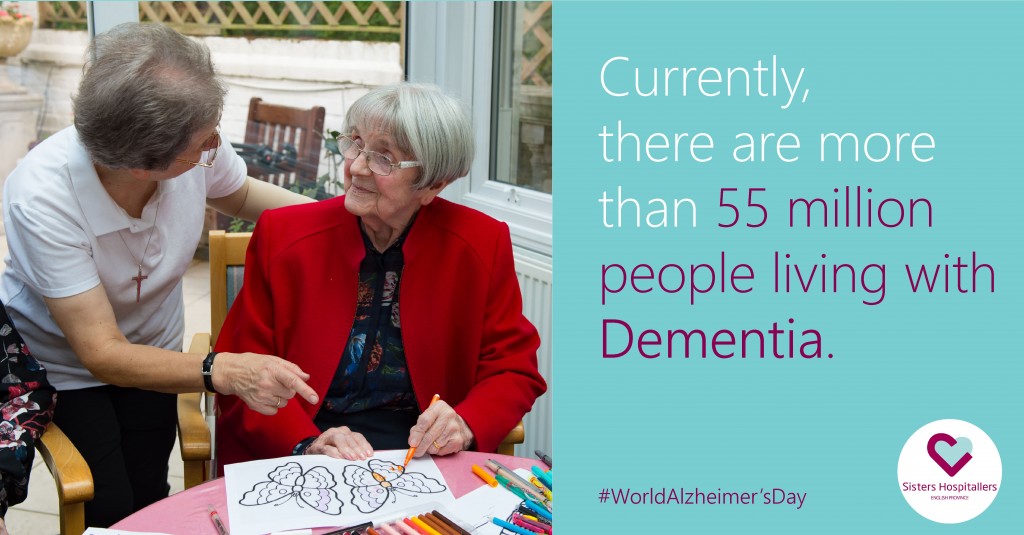St Teresa’s HomeLondon, UK
Residential care
Today is World Alzheimer’s Day. According to the World Health Organization, there are currently 55 million people living with Dementia around the world. And what’s more, there are around 10 million new cases every year.
The WHO defines Dementia as a syndrome that leads to deterioration in cognitive function (i.e. the ability to process thought) beyond what might be expected from the usual consequences of biological ageing. It affects memory, thinking, orientation, comprehension, calculation, learning capacity, language, and judgement. Consciousness is not affected. The impairment in cognitive function is commonly accompanied by changes in mood, emotional control, behaviour, or motivation.

It’s a symptom of Alzheimer’s and other forms of mid-stage to advanced Dementia. Mainly, it causes confusion and agitation to worsen during the evening.
However, here are 5 tips to help reduce Sundowning:
– Keep track of your loved one’s triggers: Identify patterns in their routines that are triggering or worsening this symptom.
– Soften their night routines: Introduce easy and simple activities for their evenings, like music or calm TV shows. Frustration or stress can trigger the symptom.
– Introduce them to a balanced diet: Late-afternoon alcohol or caffeine can worsen sundowning. Instead, try promoting a lighter dinner and softer drinks during the evening.
– Light up their evenings: Changes in the light can increase your loved one’s confusion. Before the sunset, try closing the curtains and switching on the lights in the room. This can ease the transition from day to night for them.
– Stick to a routine: People with dementia feel more at ease when they are familiar with the activities and their schedule. Therefore, try to keep their routine as stable as possible or introducing changes very gradually if necessary.
Shredding paper is a common behaviour in people living with advanced stages of Dementia.
Although there is not always an explanation to certain behaviour patterns among people with dementia, shredding paper has been found to feel as relaxing for them as taking a warm bath.
The reason? It allows the person to release some of the frustration that often comes with the disease. Another usual behaviour is to shred tissues or break small objects.
If the papers being shredded are not important, allow the person with dementia to use them to relief some tension. Nevertheless, here are some tips that can help reduce this habit:
– Watch out for other symptoms: This behaviour can be a warning of a health issue such as a urinary infection.
– Keep them entertained: Boredom often triggers destructive behaviours, as it may awaken the person’s feeling of frustration.
– Leave old papers or newspapers in sight: This way, your loved one will most likely use them, and not the important ones, as their punching bag.
– Help them repair broken toys: Simple-to-repair toys can help people with dementia feel more at ease and reduce their need to destroy them.
If these behaviours increase, it is always recommended to see a professional.
The Clock-Drawing Test is a simple and fairly quick method that can help diagnose Alzheimer’s and other types of cognitive deterioration.
There are three ways of carrying out the Clock-Drawing Test that vary in difficulty. For instance, the patient can have a blank page so that they will have to start it from scratch. Another option is to hand them a paper where the sphere has already been drawn. Lastly, they can get both an image of a clock and a blank page to copy it.
Despite its simplicity, a large part of the scientific community agrees that this test is an efficient method of screening for cognitive difficulties. You can read more about it in our recent article.
Looking for a new home for your loved one?
At our care homes, we offer specialised care for people living with dementia and other related illnesses.
Our residents feel at home from the very first day.
Residential care

Residential care

Residential care
